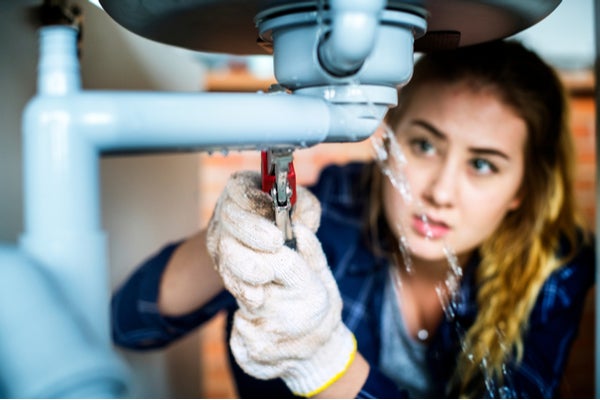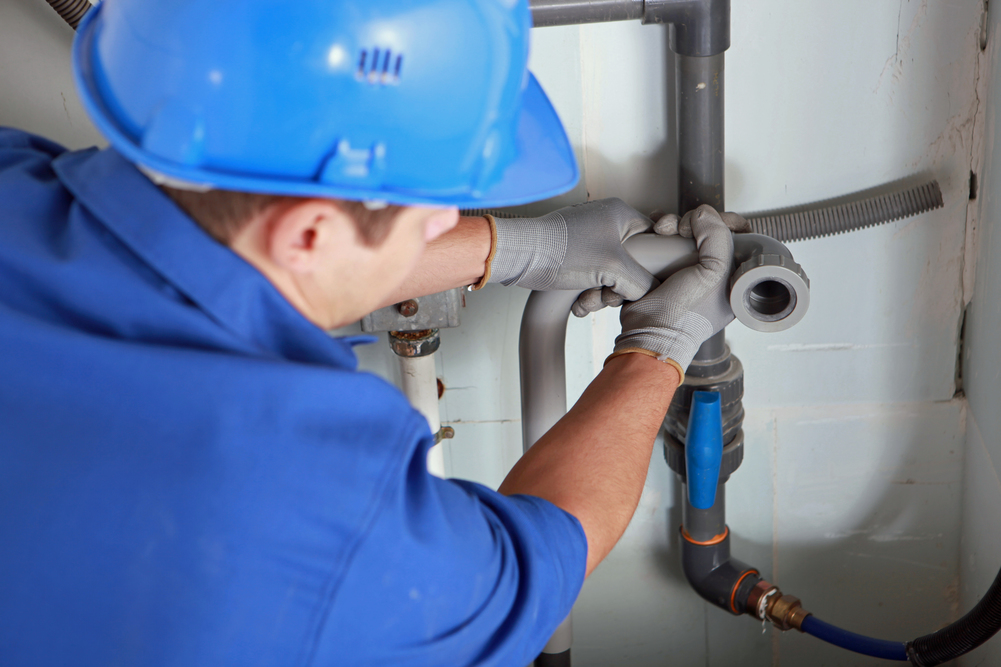Learn Stop Six Practices Ruining The Plumbing Systems
Learn Stop Six Practices Ruining The Plumbing Systems
Blog Article
Are you currently interested in help on Leak Detection and Repair Without Destroying Your Home?

The key to durable devices, unsurprisingly, appertains upkeep. There's no hard and fast guideline that can ensure your plumbing home appliances a long wear, but you can protect against unneeded damages and also repair work by staying clear of poor plumbing routines.
You ought to stop doing these 6 things else you'll maintain calling your plumber over for minor faults.
Purging every little thing
Yes, your toilet drainpipe brings about the sewage systems, yet that doesn't imply you should dump simply anything away. Lots of 'flushable' materials are actually great obstruction beginners, for instance dental floss. Asides maintaining evident non-flushable materials like wires and also plastics out of your commode, you must also avoid flushing cotton buds, menstrual items, wipes, daipers as well as condoms down the commode drain.
DIYing everything
With plumbing, a stitch in time actually does save nine. You can stop a fullblown plumbing emergency by calling your plumber at the right time.
You might have learnt a couple of plumbing hacks from your daddy, but you should certainly understand where to draw the line and also call a professional. For example, you might be able to deal with a blockage on your own, however you shouldn't attempt to transform a pipe. You might inequality pipelines or overtighten a screw, causing more injury as well as damage than you thought. Calling a plumber is a risk-free as well as cost effective decision.
Utilizing way too much drain cleaner
Making use of a drain cleaner more than one or two times a month is an indication that something major is taking place within your pipelines. Currently, as opposed to encountering the major issue, you opt for a quick fix; a fizzy drain cleaner. Rightfully, a drain cleaner will deal with the blockage, yet at what price?
The chemicals in a drain cleanser can hasten the corrosion of your pipes. Add that to whatever underlying problem is causing the clog and you may need to a severe issue on your hands.
If you experience way too many blockages, call your emergency plumber rather than utilizing a drain cleaner.
Pouring grease in the sink
We know properly disposing of oil after a hearty meal is a pain. But merely putting it away can do lasting injury to your pipelines. "The fat as well as grease can clog your drain severely adequate to force you to call a plumber," explains Dawson. "Plumbing functions best when it's well looked after-- not abused with grease."
Not changing your dishwasher hoses
One very easy method to guarantee that you use your dishwasher for several years is to change the pipe a minimum of once in five years. This additionally looks for cleaning device hoses.
Over time, food fragments, soap as well as grease can create obstructions within your pipelines. Replacing them promptly will certainly avoid any kind of presure build up that can harm the internal functions of your dishwasher or cleaning device.
An enhanced steel braided hose does a wonderful task of prolonging your equipment's use time.
No winter months safety measures
Extreme weather are bad for your pipelines, particularly if they're constructed from steel. You must insulate your exposed pipes, and also your water container, even if you have a hot water heater. You must likewise turn off your garden pipe valve and any other exterior water networks. These channels are outlets for cold; you pipelines can start to freeze from outdoors if you do not.
Ways That Hard Water Affects Your Plumbing And Appliances
CLOGGED DRAINS
Calcium and magnesium from hard water go beyond the drain screen that you clean. Each time water passes through the drain screen, the minerals attach to the sides of the pipes and other hard water deposits. As you continue to use the drain, more of the minerals attach to these deposits, eventually clogging the drain. Most drain cleaners remove only a small amount of the minerals, so the drain continues to run slow and back up water in your sinks, tubs, and showers.
DECREASED WATER FLOW
Do you have a faucet that runs slow even when you increase the water flow at the valve? Hard water deposits not only affect how water runs out of your home but also how water is delivered to your faucets. When calcium, magnesium, and minerals build up in pipes, it slows the flow of water and also builds up pressure inside the pipes that causes a backflow of water.
CORROSION
Calcium and magnesium have properties that are destructive to certain types of metal, many of which are used for plumbing in older homes. The minerals slowly break down the metal in your pipes. This can cause leaks, breaks, and even discolored water. If the corrosive section of the pipe is not repaired and the hard water deposits removed, entire sections of your plumbing may disintegrate. You may end up replacing a large portion of your plumbing system. Corrosion can happen on any metal surface, not just your pipes. Calcium and magnesium can also cause corrosion on your faucets, drains, valves, appliances, and fixtures.
REDUCED WATER QUALITY
You rely on your plumbing system to deliver clean water for cooking, washing your clothes, bathing, and many other daily tasks. Hard water has small particles of minerals in it. The water is safe to drink, but it is not ideal for your appliances. The minerals interfere with how soaps and detergents work to remove dirt, food, oils, and other substances. As a result, you must use more cleaning products, and your appliances have to work harder to clean dishes and clothes.
BROKEN PIPES AND LEAKS
Broken pipes and leaks from hard water happen in two ways. First, hard water is corrosive to the materials that are used in older homes. Eventually, minerals eat through the pipe and create a small opening in the side of the pipe. The opening grows larger and larger until you have a major leak on your hands. Second, the mineral deposits inside the pipes prevent water from flowing through efficiently. If the water is pushed through the plumbing at the same volume, pressure builds up, and eventually, the pipes and connections fail.
ENERGY EFFICIENCY
Hard water and mineral deposits in your plumbing affect the energy efficiency of your appliances, even the older models that do not meet modern standards. When you find a white residue on your dishes or your clothes don’t feel clean, you may find yourself running the wash cycle a second time. This requires more energy use and raises your utility bills. Some newer high-efficiency models of dishwashers and washing machines have sensors that detect when items are clean. Hard water deposits on the dishes or clothes will trigger the sensors and cause the appliance to run longer.
Another way that hard water affects your budget is the investment you make in products for hard water deposits. Rather than spending your money on higher utility costs and household products, invest in a water softening system from Beyer Plumbing Co. to prevent the problems of hard water.
WEAR AND TEAR
Hard water deposits build up on the connections, drains, and jets in your washer or dishwasher that circulate the water and clean your clothes and dishes. As a result, water may collect inside your appliances, creating the ideal environment for corrosion, mold, and other damaging substances. The components break down sooner, and your appliances may not last as long as expected. In some cases, the lifetime of an appliance may be reduced by three or four years simply due to hard water deposits. Using soft water in your appliances ensures that you get the maximum return on your investment.
https://beyerplumbing.com/9-ways-that-hard-water-affects-your-plumbing-and-appliances/

I came across that blog entry on Leak Detection and Repair Without Destroying Your Home when doing a search on the internet. For those who enjoyed reading our blog post if you please don't forget to share it. Thanks so much for your time invested reading it.
Suggested Site Report this page